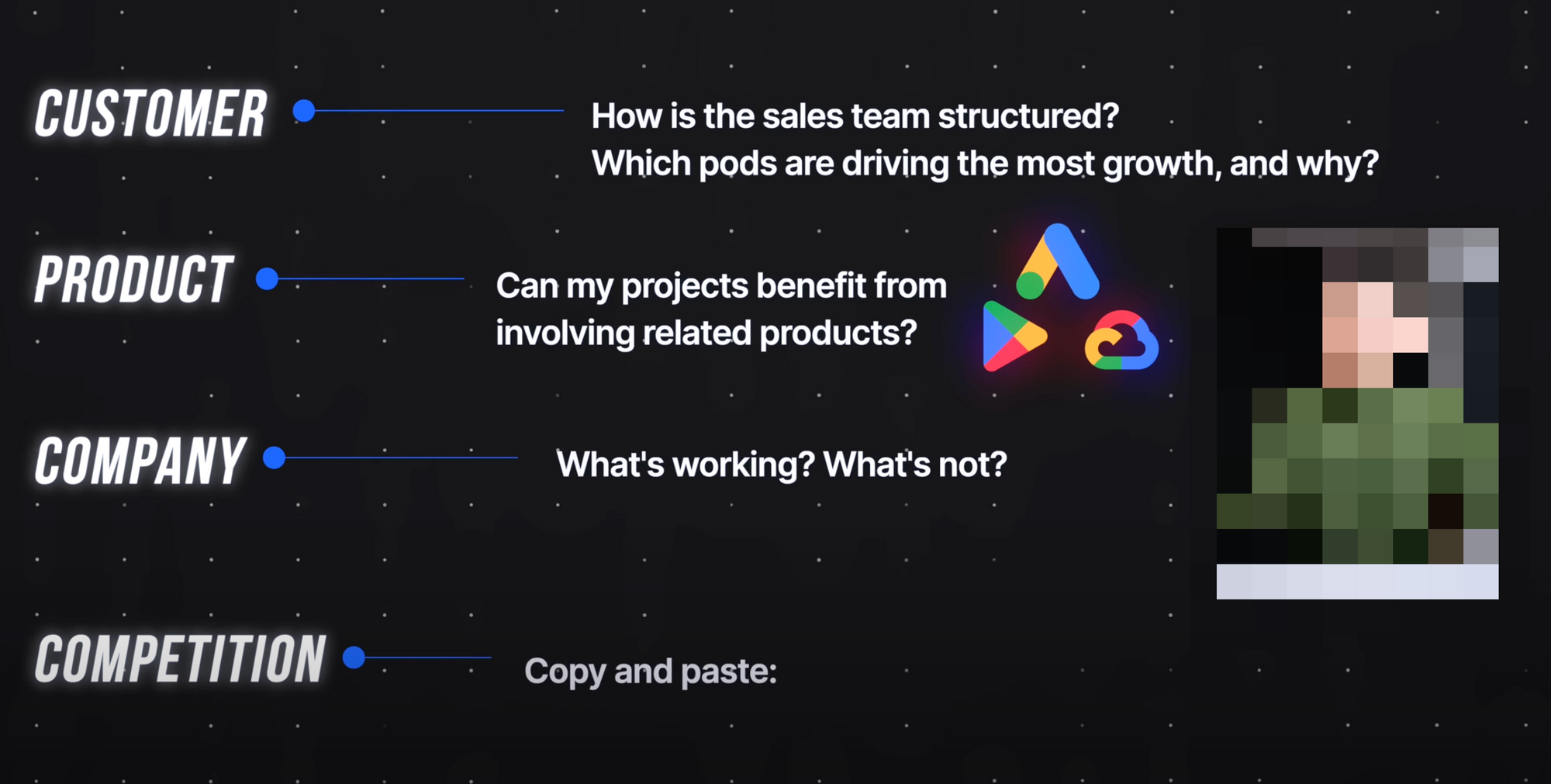Is Management Consulting a Waste of Time?
So when I was promoted to a Senior Consultant back in 2016, I was ecstatic. All that intense overtime, travel and sucking up finally paid off.
Then, I joined a large tech company and my job level got bumped back down to that of an entry level hire.
Now, 6 years and 3 more promotions later, I can’t help but wonder, did I waste 2 years of my life as a management consultant?
Resources
Watch it in action
What I got out of Management Consulting
So did I waste my time? The answer is a resounding no.
Putting aside the fact that job title and pay is a very one-dimensional way of looking at professional growth, this view is also missing all the other benefits I got during my time as a consultant:
- A wide range of exit opportunities
- A network of professionals across industries
- An arguably faster career path with the skills I learned
And there is one skill in particular that has completely changed my professional life. It defines how I approach everything from ramping up into a new team to annual business planning.
And that skill is effective problem-solving.
Bold statement, I know. Let’s take a step back and provide some context.
All consulting firms and most tech companies have something called “case interviews'' as part of the interview process.
A simple example being: Profits for Noiceflix is down 20% year on year, why?
How to Problem Solve using Frameworks
An oversimplified “correct” way to answer the question is:
- Break the question down into parts: Profits = Revenue - Cost
- Drill down each part by asking relevant questions to find more information: for example What are the top 3 revenue and cost drivers in the past year?
- Use BLUF (bottom line up front) to summarize your findings:
The 20% year on year decrease in profits is driven by an over-hiring in the domestic streaming department, where revenue growth has been stagnant. We know this because of A, B, and C
And I know this because all I did was apply a framework I memorized specifically for case interviews. Although there are different frameworks out there, the steps you take to solve the problem are always the same.
- Define the problem and break it down into component parts
- Gather relevant information for each part
- Summarize with an actionable recommendation
In short, preparing for case interviews and working on consulting projects forced me to adopt and internalize this framework mentality. This has completely changed the way I approach problems.
Example: Business planning
As a real-life example, when I first transferred to the product marketing team, the sales director asked me what the plan was for the next year. Where do I even begin?
Enter: the business case framework by Victor Cheng. Using this, I broke down the problem into 4 parts: Customer, Product, Company, and Competition:
- Customer - My customer is the sales team and I needed to figure out things like: how is the sales team structured? What pods are driving the most growth and why?
- Product - I work mainly on Google Ads but can my projects benefit from involving related products like Google Play and Cloud? If yes I need to reach out to those teams as well
- Company - What marketing campaigns are we already running? Let’s continue the ones that are working and stop the ones that aren’t
- Competition - What’s the competition doing? Can I copy and paste any of their existing campaigns for a quick win?
Does this framework guarantee a “correct” answer?
No, there is no correct answer. But it helps me organize my thoughts in a very structured way and more importantly inform my next steps:
- I need to do some market research, ask sales for this information, my manager for this information, and reach out to these teams for additional support

Example: Starting a new job
A more relatable example: you start a new job and you’re feeling a little overwhelmed.
Use the same framework, break the problem down into manageable chunks, and tackle them one at a time by asking relevant questions.

How you can use frameworks
So do you need to go find and memorize a bunch of frameworks? No.
In fact, I would argue this business case framework can be applied to most problems you’ll face at work.
And with enough practice, the next time you come across a problem you’ve never encountered before, instead of panicking, you will fall back on this framework mentality.
- Break the problem down
- Ask questions
- Summarize next steps
When I started doing Youtube I was overwhelmed, so I busted out the framework.
- Customer -> My audience
- Product -> My content
- Company -> The Jeff Su brand
- Competition -> Other educational creators
After the exercise, I knew what my next steps were and I felt back in control.
Want to learn (even) more from my failures?
Check out my Succeed in the workplace playlist!